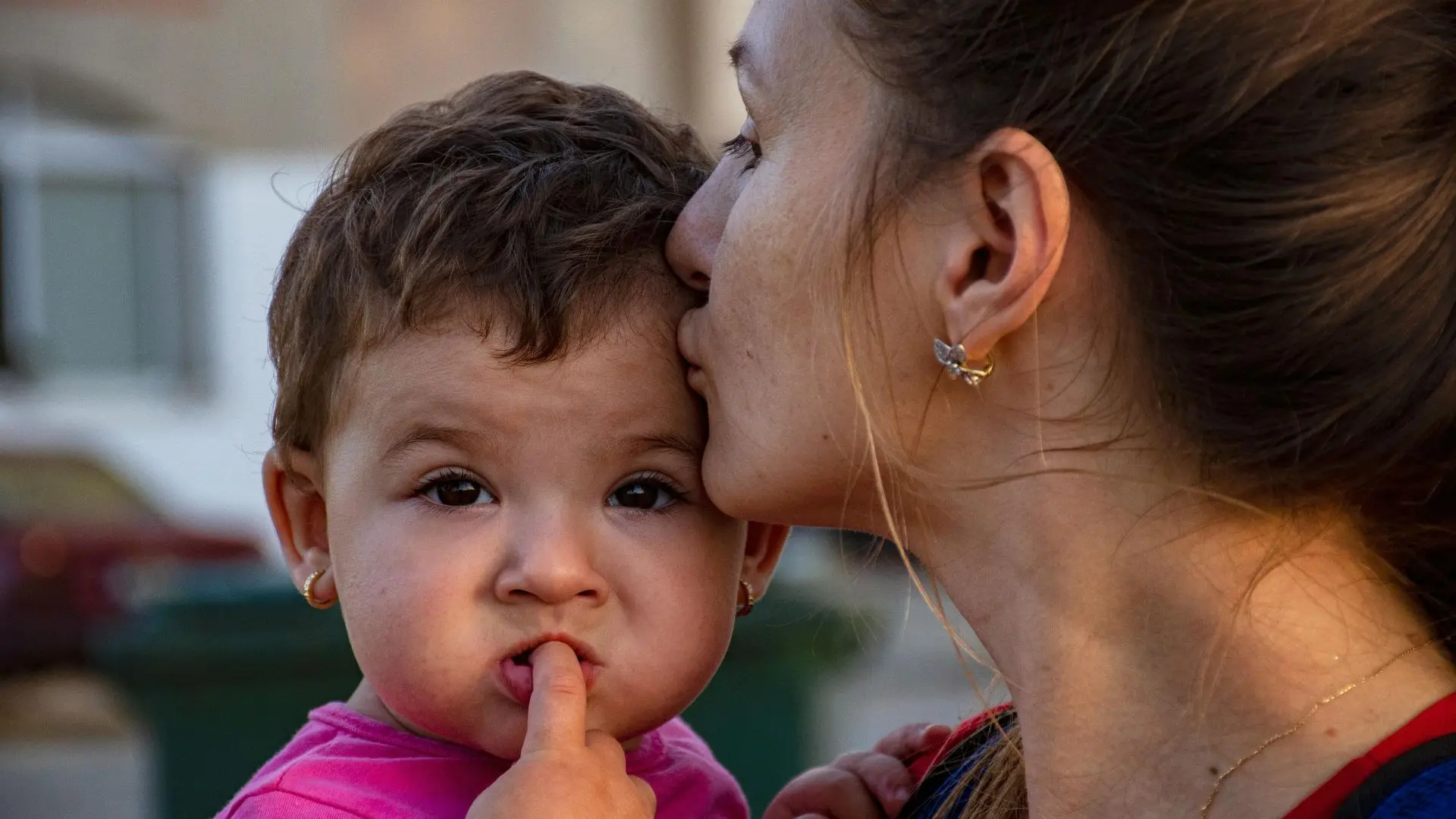Find out the key differences between solo parenting and single parenting with our 10 essential insights, packed with actionable tips for thriving in each role.

Parenting without a partner’s day-to-day help is incredibly challenging, and whether you’re doing it temporarily or permanently can make a world of difference. Solo parenting and single parenting are often used interchangeably, but they involve distinct struggles and dynamics.
If you’re wondering what sets them apart—and which might be harder or more manageable—you’re not alone. In this post, we’ll break down the key differences and provide valuable insights into navigating either path with confidence.
1. What Is Solo Parenting?
Solo parenting occurs when one parent temporarily takes on full responsibility for the children due to the other parent’s absence. This absence may be due to work-related travel, military duty, illness, or other life circumstances. For example, if one parent is deployed in the military for several months, the other parent becomes a solo parent during that time.
Unlike single parenting, which is often a long-term or permanent situation, solo parenting has a defined end when the other parent returns. Solo parents can still rely on their partners for emotional and financial support, even if they are not physically present. A common example in the U.S. is when one parent is working long hours at a high-demand job, and the other parent handles the day-to-day duties for a short period.
2. What Is Single Parenting?
Single parenting refers to the scenario where one parent is permanently the primary caregiver of the children. This situation arises due to various factors, such as divorce, separation, the death of a spouse, or a decision to raise a child independently. For instance, a divorced mother who has primary custody of her children and is solely responsible for their upbringing is a single parent.
Unlike solo parenting, where there is a temporary partner absence, single parents often manage everything themselves long-term. They must juggle responsibilities without relying on a co-parent to step in. Many single parents face the challenge of balancing full-time work, childcare, and running a household without daily assistance from the other parent.
3. Challenges of Solo Parenting vs Single Parenting
While both solo parents and single parents face a range of challenges, these difficulties differ based on the nature of the situation.
- Solo Parenting: The primary challenge for solo parents is managing everything alone for a temporary period. For example, when one parent is on a business trip, the other parent must take over all aspects of childcare and household management. The stress may be high, but there is typically a light at the end of the tunnel when the partner returns.
- Single Parenting: For single parents, the challenges are ongoing. A single mother working two jobs to support her family may experience emotional and financial fatigue. With no partner to return to, these challenges require long-term strategies and a strong support network.
The duration and intensity of the challenges vary. Solo parenting may feel overwhelming in the short term, while single parenting is a marathon, requiring sustained endurance.
4. Insights Into Solo Parenting vs Single Parenting
Here are these:

Level of Responsibility
- Solo Parenting: The responsibility falls entirely on the parent temporarily in charge. For example, a mother whose husband is deployed in the military assumes complete control over the household and the children’s well-being during his absence.
Tip: Create a detailed schedule outlining daily responsibilities and activities. Use apps like Google Calendar to keep track of everything, making it easier to manage time. - Single Parenting: In single parenting, the responsibility is permanent. A single father, for instance, might be the sole decision-maker for his children, from healthcare to education, without the possibility of sharing the load with another parent.
Tip: Consider creating a co-parenting agreement with the other parent to clarify responsibilities, even if they aren’t present. This can prevent misunderstandings and provide structure.
Financial Considerations
- Solo Parenting: Financial pressure might not be as intense in solo parenting since the absent parent often still contributes financially. For example, even when one parent is away for work, their income continues to support the family.
Tip: Set up a joint account for shared expenses that both parents can contribute to, ensuring bills are covered even during solo parenting periods. - Single Parenting: In contrast, single parents are often the sole breadwinners. They handle all expenses, from groceries to college funds, without consistent help from the other parent. Child support payments may help, but they don’t always cover all costs.
Tip: Explore financial aid programs and local charities for assistance with food, childcare, and healthcare. Websites like Benefits.gov can help identify available programs.
Emotional Support
- Solo Parenting: Solo parents can still count on their absent partner for emotional support. For example, a father traveling for work may call home regularly to provide reassurance to both the solo parent and the children.
Tip: Use video calls for family check-ins, creating a sense of connection and routine for both the solo parent and children. - Single Parenting: Single parents may not have this type of emotional support. A single mother raising a child after a divorce may have to rely on friends or family for emotional backing, as the other parent may not be involved.
Tip: Look for local support groups such as Single Parents Alliance of America or Meetup groups for single parents. Connecting with others in similar situations can provide valuable emotional support.
Time Management
- Solo Parenting: Solo parents temporarily juggle household chores, work, and childcare without their partner’s help. For example, a parent whose spouse is a nurse working 12-hour shifts may need to manage the children’s schedules entirely on their own for a few days.
Tip: Utilize meal prep services or plan meals for the week in advance. This can save time during busy weeks and reduce stress over what to cook. - Single Parenting: Single parents face the same time management challenges, but with no end in sight. A single dad raising three children on his own might need to carefully plan every hour of the day to balance work, cooking, and attending his kids’ extracurricular activities.
Tip: Prioritize tasks by using the Eisenhower Box method, categorizing tasks into urgent and important. This helps focus on what truly needs to get done.
Stress Levels
- Solo Parenting: Stress is usually high but temporary in solo parenting. For example, a mother whose spouse is out of town may experience heightened stress during that time but knows relief will come when her partner returns.
Tip: Incorporate stress relief techniques like meditation or mindfulness practices. Apps like Headspace or Calm can guide short daily sessions. - Single Parenting: Single parents often experience higher levels of ongoing stress. With no consistent backup, a single parent might struggle to find time for themselves, which can lead to long-term emotional strain.
Tip: Set boundaries around “me time.” Schedule regular breaks, even if it’s just 15 minutes for yourself daily, to recharge.
Childcare Arrangements
- Solo Parenting: When a solo parent needs childcare, they often arrange for temporary help from friends or family. For example, a solo mom might ask her parents to watch the kids while she works late.
Tip: Use local resources like Care.com to find trusted babysitters or caregivers. Many services offer background checks to ensure safety. - Single Parenting: Single parents often need permanent childcare solutions, whether it’s a daycare, babysitter, or after-school program. With no partner to share these duties, a single parent must manage this long-term.
Tip: Look into state-funded childcare programs that provide financial assistance based on income, helping to cover costs.
Social Interaction
- Solo Parenting: Solo parents may lack regular adult interaction when their partner is away but can still connect when the partner returns. For instance, a father whose wife is on a business trip may rely on calls with friends or neighbors for adult conversation during her absence.
Tip: Plan regular playdates or family gatherings with friends, providing both social interaction for you and entertainment for the kids. - Single Parenting: Single parents often need to seek out social interaction on their own, as there’s no co-parent to turn to. Joining support groups or maintaining a circle of friends becomes crucial for avoiding isolation.
Tip: Utilize social media platforms to connect with local single parenting groups, fostering new friendships and support networks.
Parenting Satisfaction
- Solo Parenting: Solo parents may feel proud of their ability to manage everything while their partner is away, but also relief when their partner returns. For example, a mom whose husband works long shifts might feel accomplished by handling things alone but glad to hand off duties when he’s back.
Tip: Take time to celebrate small wins, like completing a task or spending quality time with your kids. Keeping a gratitude journal can enhance satisfaction. - Single Parenting: Single parents can find satisfaction in being self-sufficient but may sometimes long for shared decision-making. A single mother raising her child independently might find pride in her role but also wish for someone to share the ups and downs.
Tip: Engage in regular self-reflection. Setting personal goals and reviewing them can provide a sense of achievement and direction.
Impact on Children
- Solo Parenting: Children may feel temporarily stressed by a parent’s absence but usually adjust quickly when the family returns to normal. For example, a child whose father is deployed might feel anxious during that time but is comforted when he returns.
Tip: Maintain open communication about their feelings regarding a parent’s absence, encouraging them to express their emotions. - Single Parenting: Children of single parents may face long-term emotional effects but can thrive in stable, supportive environments. A child of a single father may need additional emotional reassurance but can still grow up well-adjusted with the right resources.
Tip: Consider family counseling or therapy. Professional support can help address any emotional challenges your children may face.
Long-Term Planning
- Solo Parenting: Solo parents plan for their children’s future with the help of their absent partner. For example, parents may decide together on their child’s education or healthcare, even if one is temporarily away.
Tip: Use online resources happy parenting and family.com to explore educational options and resources for your child. - Single Parenting: Single parents make these decisions independently. A single mom might need to plan her child’s future without input from another parent, which can add pressure but also give her full control.
Tip: Seek advice from local parenting workshops or webinars, often hosted by community centers, to gather insights and tips for effective planning.
5. Which Is Best? Solo Parenting vs Single Parenting
There is no definitive answer to whether solo parenting or single parenting is better. Each situation has its pros and cons, depending on the family’s circumstances. Solo parenting offers the benefit of having a co-parent, even if temporarily unavailable. Single parenting, on the other hand, allows the primary caregiver full control over decision-making but often requires a greater degree of independence and resilience.
What’s most important is the well-being of the parent and the child. Both solo parents and single parents can thrive by building a strong support network, prioritizing self-care, and seeking resources to manage stress and challenges effectively.
Conclusion
In conclusion, whether you are a solo parent or a single parent, it’s essential to recognize the unique challenges and benefits of each. Both require immense strength, adaptability, and a support network to succeed. Remember, the ultimate goal is creating a nurturing, stable environment where both parent and child can thrive. By understanding these differences, parents can better navigate their roles and build fulfilling, happy lives for their families.
You may also be interested in : Single Father Depression – Key Stressors, Symptoms, and Actionable Solutions